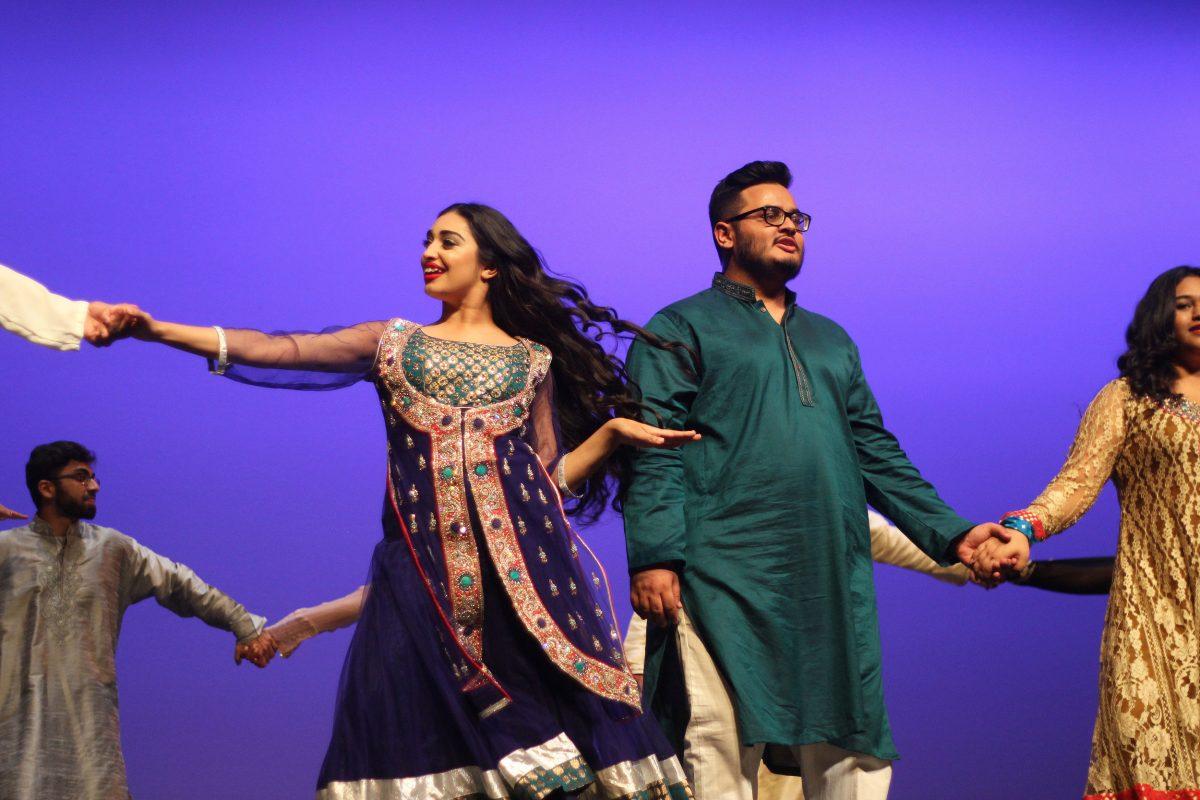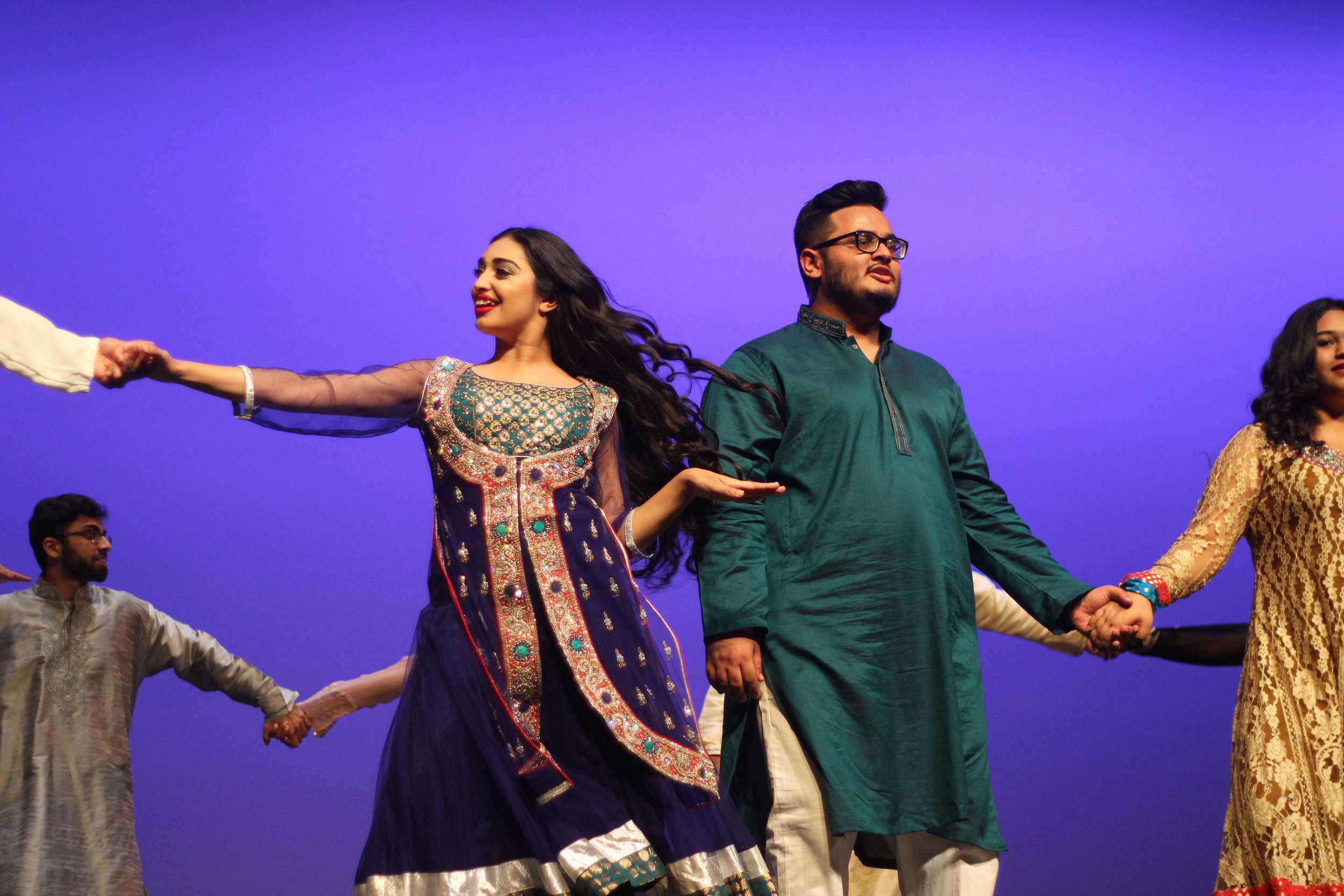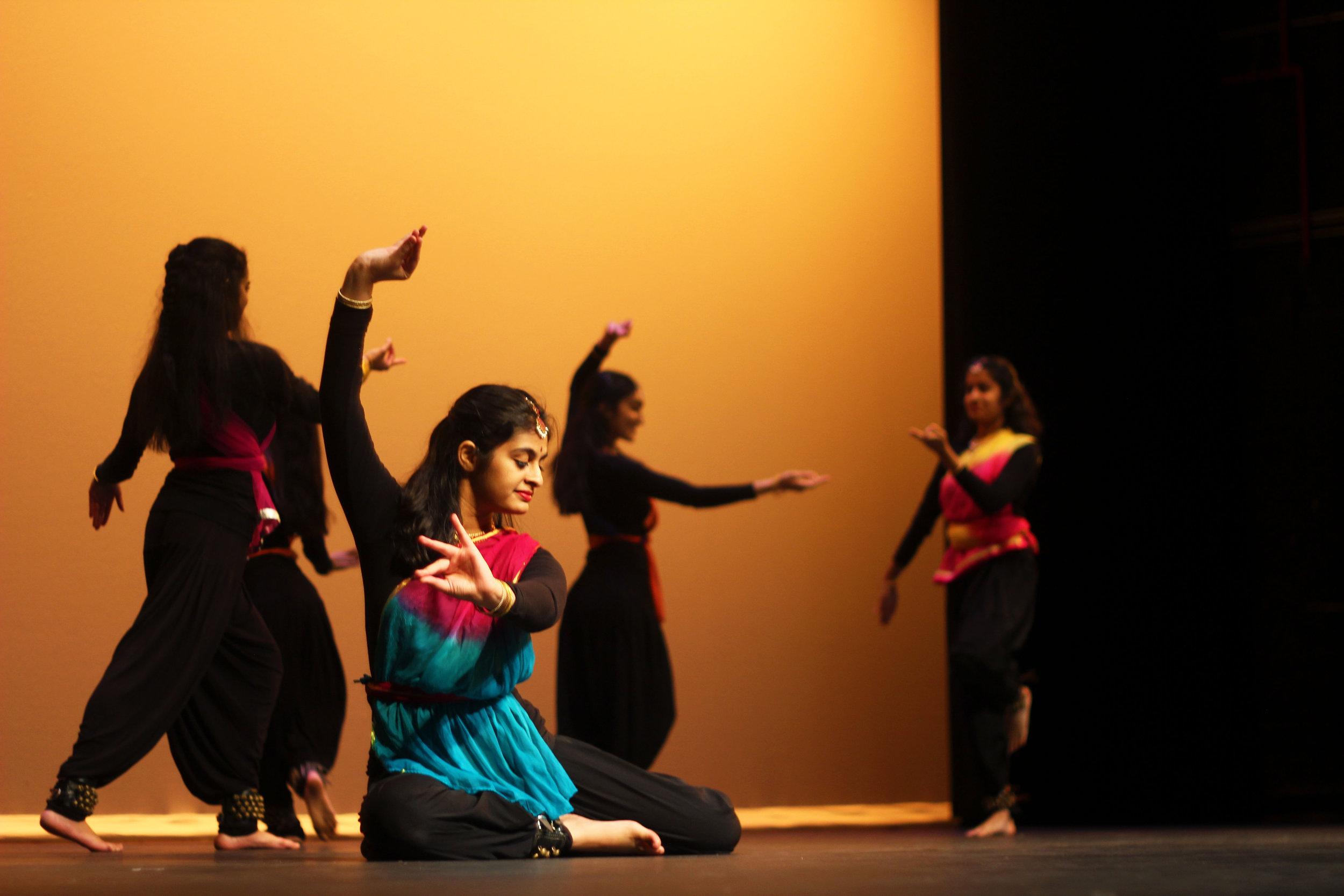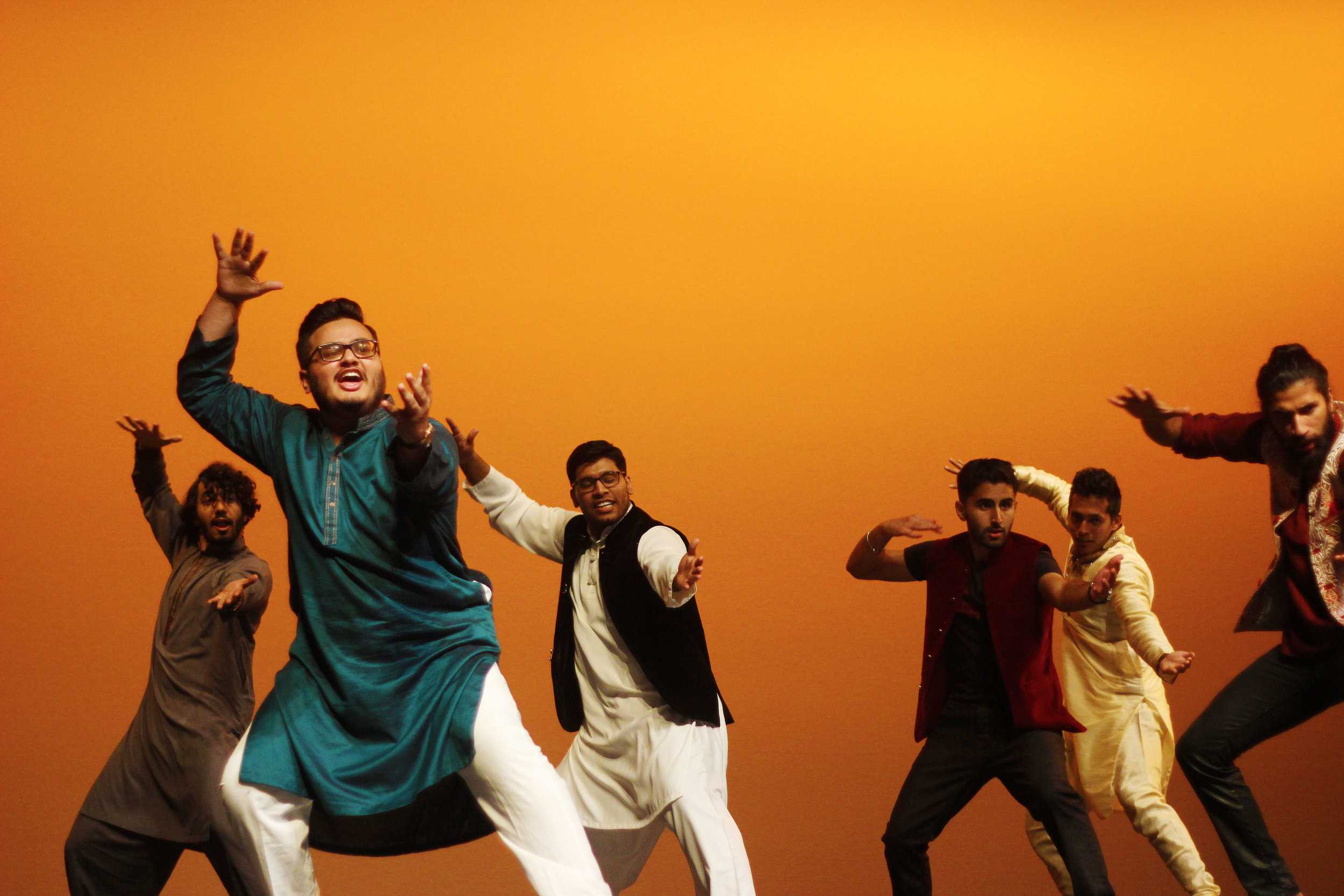Musical and dance performances highlighted elements of both American and Desi culture.
South Asian students made waves in a cultural showcase that brought Eastern traditions to the West. The Pakistani Student Association hosted “Basant,” an annual festival complete with comedy, dancing, food and a fashion show.
Story by Rimsha Syed
Photos by Kiana Fernandez
The roots of this festival can be dated back to ancient times. Originally called Vasantotsav, Basant marks the beginning of the spring season. As the scent of fresh flowers fills the air, South Asian communities gather and celebrate a new opening in all aspects of life. Kite flying competitions are a beloved activity across India, Pakistan, Bangladesh and Nepal.
Although Basant is historically a Hindu festival dedicated to the goddess Saraswati, it is a widely celebrated Punjabi ritual that blends all limitations of society, religion, caste and background. In several ways, Basant highlighted the diversity present within South Asian communities.
All-girl dance group, Zohba, performs to Pakistani instrumental music
PSA first introduced Basant in 2009 to celebrate a spring festival that happens in the city of Lahore, where people of multiple faiths and upbringings are able to rejoice, hand in hand. “Our intention is to bring culture to students who are not exposed to it because they are far from their families and don’t get to experience Pakistani culture on a university campus,” PSA vice president and economics senior Ahmed Razzak says.
As the director of the Bangladeshi Student Association, Manar Hasan says he was pleased with the extravaganza. “Basant provided a platform to celebrate a mixture of cultures through song and dance,” transportation engineering graduate student Hasan says. “A lot of students at UT are second generation immigrants who identify with not just the cultural roots they share with their parents, but also with the unique American culture.”
Dance performances continued through the night.
Performers from several different groups including PSA, Zohba, a kathak dance team, and hum a capella were able to embrace their identity not only but putting on a show-stopping performance but also by encouraging audience members to educate themselves about their heritage. “I loved dancing with my friends,” biochemistry sophomore Nida Madni says. “Basant allowed both Pakistanis and Bengalis to unite together, and I wouldn’t change it for the world.”
In a country as polarized as the United States is right now, it is important to dedicate time for occasions that bring people together. Celebrating Basant with colorful traditional attire and comedic performances is an annual custom that students look forward to.
Between the dedication of the organizers and the countless hours that performers spent preparing for the show, Basant 2017 will be remembered as one of the most successful and engaging events of the semester.














































